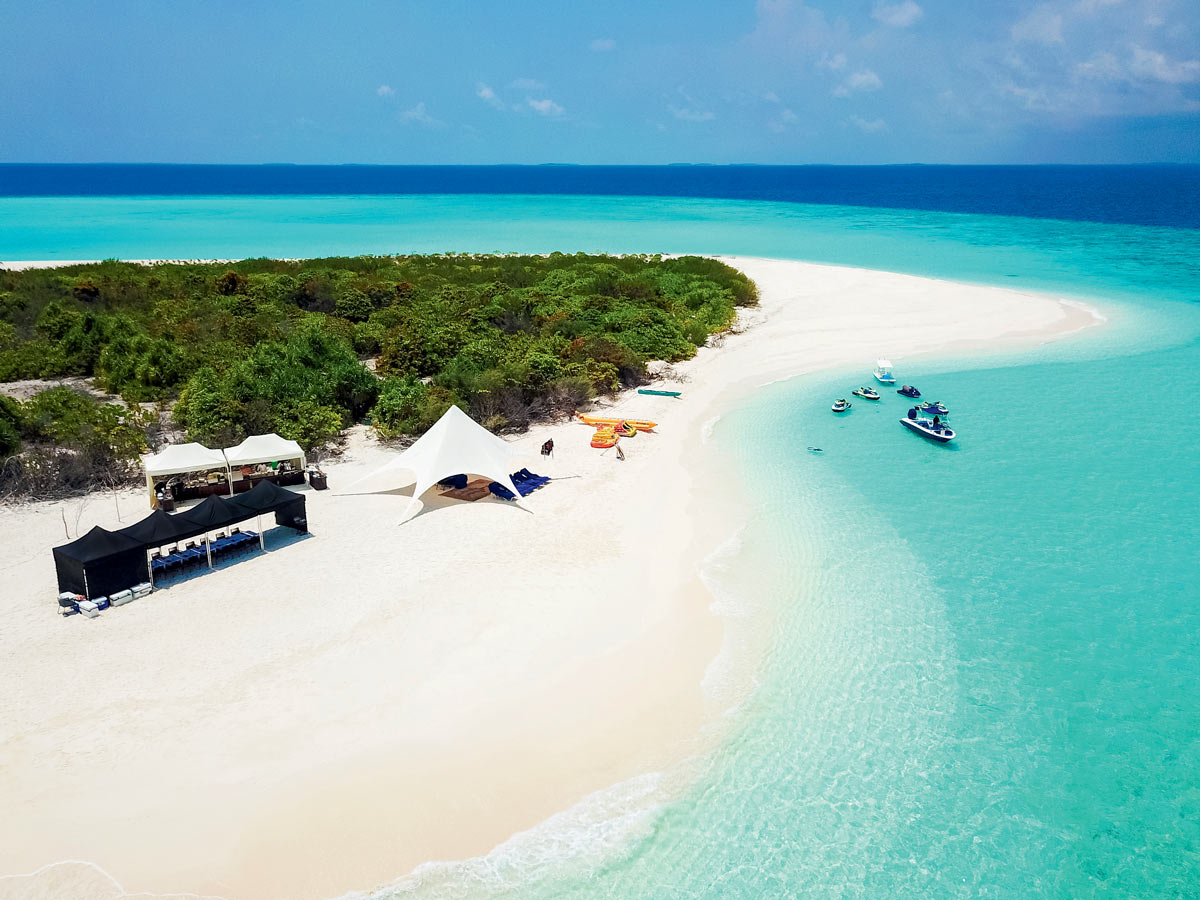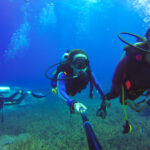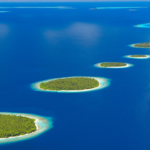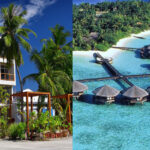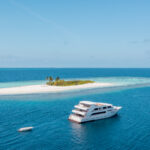Tourism and environmental preservation are increasingly aligned through sustainable practices and innovative approaches. Destinations are implementing eco-friendly initiatives, such as energy-efficient accommodations and waste reduction programs, allowing visitors to enjoy natural beauty with minimal impact. Ecotourism promotes conservation by offering economic incentives to preserve natural habitats and educate visitors about local ecosystems and cultures.
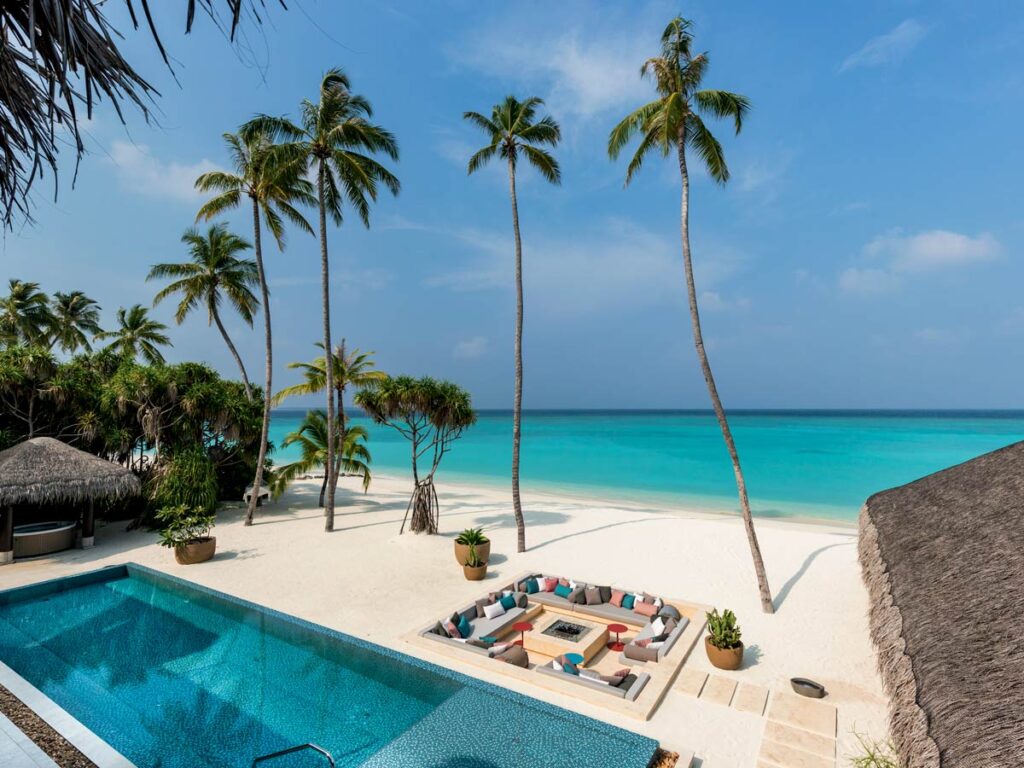
Protected areas, such as UNESCO Biosphere Reserves, balance tourism and conservation by safeguarding biodiversity and offering controlled visitor access. Entrance fees support conservation, and operators adopt low-impact practices. Engaging local communities in tourism planning fosters sustainable models that benefit both the environment and local economies, promoting stewardship among residents and visitors.
Sustainability in the Maldives
Resorts in the Maldives are at the forefront of prioritizing sustainable practices, demonstrating that tourism and environmental responsibility can coexist. These resorts implement various eco-friendly initiatives to reduce their carbon footprint and set a standard for the industry.
Resorts are not only preserving their pristine environments but also appealing to the growing demographic of eco-conscious travellers. This proactive approach underscores the resorts’ commitment to safeguarding the natural beauty that attracts tourists while promoting sustainable development.
Coral Reef Restoration Initiatives
Coral reefs, often dubbed the “rainforests of the sea,” are indispensable to marine biodiversity. However, they are equally fragile, susceptible to threats such as climate change, pollution, and overfishing. Luxury resorts, recognizing the intrinsic value of these underwater ecosystems, have become ardent champions of coral reef protection.
In the Maldives, several resorts engage in coral restoration projects. For example, Four Seasons Landaa Giraavaru and Soneva runs programs such as coral restoration and anemone mapping. These initiatives involve cultivating coral fragments in nurseries and then transplanting them to damaged reef areas, promoting biodiversity and resilience against climate change.
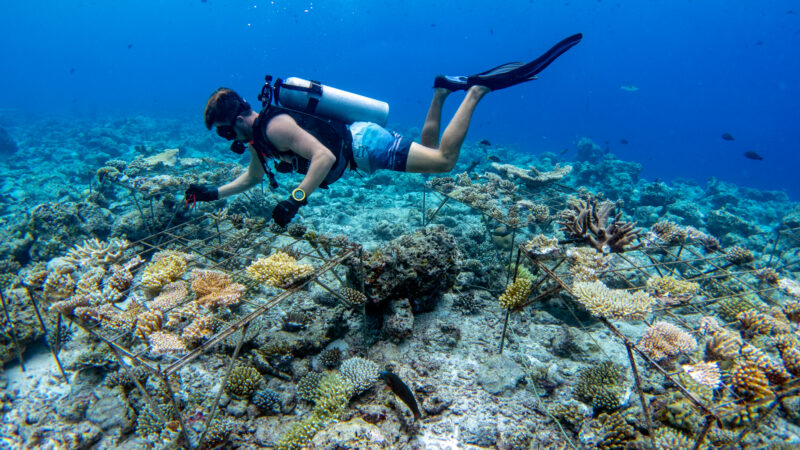
Resorts like Six Senses Laamu have in-house marine teams that conduct research and educate guests on marine conservation. Some resorts even offer “adopt a coral” programs, allowing guests to sponsor coral restoration efforts and receive updates on their adopted coral’s progress. These efforts help maintain the health and biodiversity of coral reefs, which are crucial for the overall health of the ocean.
In addition to restoration efforts, resorts are also focusing on preventative measures to protect coral reefs. By implementing strict guidelines on waste disposal and chemical usage, they ensure that harmful substances do not reach the marine environment.
Educational campaigns aimed at staff and guests highlight the importance of reducing human impact on these fragile ecosystems, fostering a culture of conservation that extends beyond the resort’s boundaries.
Technology for marine conservation.
Resorts in the Maldives must be at the forefront of integrating cutting-edge technologies to monitor and protect marine ecosystems.
Drones equipped with hyperspectral cameras and artificial intelligence (AI) are revolutionizing coral reef monitoring. For instance, researchers from Queensland University of Technology are using drones to monitor the Great Barrier Reef. These drones capture hyperspectral imagery, which can identify coral types and levels of bleaching with high precision. The data collected is processed using cloud computing services provided by Microsoft’s AI for Earth program, significantly speeding up data analysis.
Underwater drones, such as Hydrus, are also being utilized to study coral reefs. Hydrus uses AI to conduct precise and frequent surveys, capturing high-resolution 4K video and creating 3D maps of the reef. This technology allows for consistent and repeatable data collection, which is crucial for monitoring changes over time. The autonomous nature of these drones enables them to operate in challenging environments and at greater depths than human divers, providing valuable insights into the impacts of climate change on coral ecosystems.
Satellite imaging complements the data collected by drones and underwater robots by providing large-scale estimates of coral bleaching and other environmental changes. While satellite images may lack the resolution of drone or underwater footage, they are useful for identifying broad patterns and trends across extensive areas. This technology is particularly effective when combined with other methods to create a comprehensive picture of reef health.
Solar Energy Adoption
Many resorts have adopted solar energy solutions to mitigate their environmental impact. For example, Kudadoo Maldives Private Island is entirely powered by solar panels, and Four Seasons Landaa Giraavaru has a significant solar installation that powers its villas and suites. Resorts like Atmosphere Hotels & Resorts use energy-saving technologies and have installed solar panels on rooftops and floating platforms.
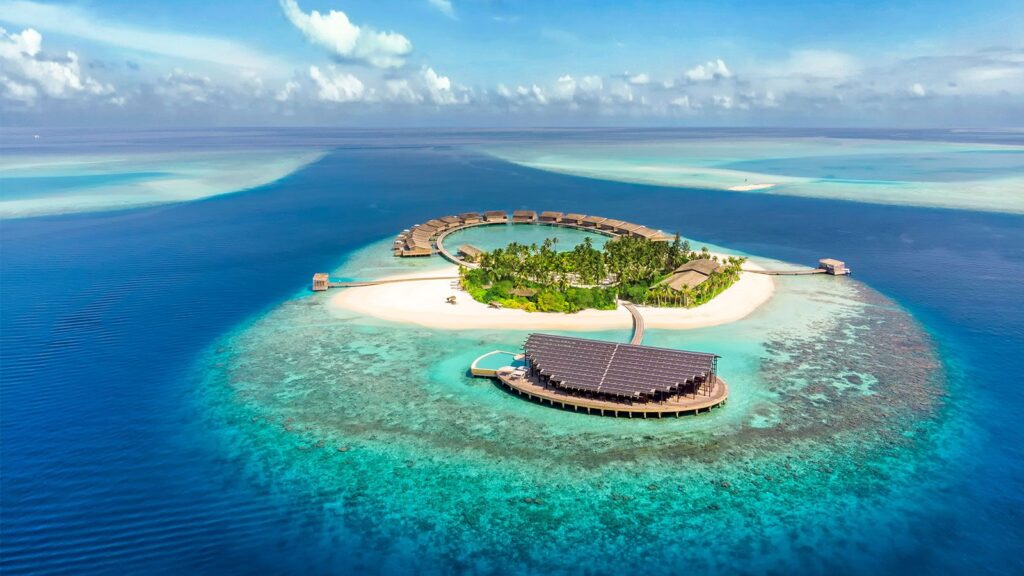
The commitment to renewable energy extends beyond solar power. Some resorts are exploring wind and tidal energy as additional sustainable sources. These innovative approaches further reduce dependency on fossil fuels, ensuring that energy needs are met in the most eco-friendly manner possible.
The shift towards renewable energy sources not only reduces greenhouse gas emissions but also decreases operational costs in the long run, aligning economic and environmental interests. By diversifying their energy portfolio, resorts can better adapt to varying environmental conditions, maintaining a consistent and reliable power supply.
Technology for Solar Energy Adoption
Resorts can optimize their solar panel installations by leveraging advanced technologies for enhanced energy production. Improved solar panel efficiency, now exceeding 20-25%, allows resorts to generate more electricity from the same area.
Bifacial solar panels, which capture sunlight from both sides, can boost energy output by up to 30%, especially beneficial for resorts with reflective surfaces like water or sand. Building-Integrated Photovoltaics (BIPV) seamlessly incorporate solar cells into building materials such as roofing tiles and windows, enabling resorts to maintain aesthetics while producing solar power.
Additionally, floating solar arrays are ideal for resorts with water bodies, utilizing space efficiently and benefiting from the cooling effect of water to enhance energy production. Smart solar panels with integrated sensors and IoT capabilities facilitate real-time monitoring and optimization, ensuring efficient energy management.
Advanced energy storage solutions, such as improved lithium-ion batteries, enable resorts to store excess solar energy for nighttime or cloudy days. These advancements collectively help resorts maximize their solar energy production, reduce environmental impact, and lower operational costs while maintaining a high-quality guest experience.
Water Conservation Efforts
Water conservation is another critical focus for these resorts. They have implemented advanced water management systems, including desalination plants and wastewater treatment facilities, to minimize their impact on local freshwater resources.
Six Senses Laamu operates zero-waste programs and has an Earth Lab dedicated to sustainability practices. Soneva Resorts boasts a robust composting program and an on-site waste processing facility that recycles about 90% of waste.
Innovative water-saving technologies, such as low-flow fixtures and rainwater harvesting systems, further enhance conservation efforts. By utilizing these technologies, resorts significantly reduce water consumption, ensuring that this precious resource is used efficiently.
In regions where freshwater is scarce, these measures are particularly crucial, helping to preserve local water supplies for the surrounding communities. These comprehensive measures ensure that resorts operate sustainably, setting a benchmark for others in the industry.
Technologies
Smart water management systems, leveraging IoT sensors and AI, monitor real-time water consumption, detect leaks, and alert maintenance teams instantly, ensuring prompt action to prevent wastage. Resorts are implementing innovative solutions such as compact, modular desalination plants and graywater recycling systems to meet their water needs sustainably.
Desalination technologies, like Fluence’s NIROBOX™, provide energy-efficient and cost-effective fresh water, particularly beneficial for coastal resorts. Graywater recycling systems enable the reuse of water from sinks and showers for non-potable purposes such as landscaping, further reducing fresh water consumption.
Eliminating Single-Use Plastics
Many resorts have joined the Government’s efforts to ban single-use plastics, including plastic straws and water bottles. For example, Atmosphere Hotels & Resorts use glass bottles for drinking water and have banned plastic straws. These measures reduce plastic waste and prevent it from entering marine environments, where it can cause significant harm to wildlife.
In addition to banning single-use plastics, resorts are adopting alternative materials for everyday items. Biodegradable packaging, reusable containers, and eco-friendly toiletries are becoming standard, further reducing the environmental footprint.
Guest education programs highlight the impact of plastic pollution, encouraging visitors to adopt sustainable practices during their stay and beyond.
Sustainable Fishing Practices
The crystal-clear waters surrounding luxury island resorts are a veritable playground for both guests and marine life. However, unsustainable fishing practices can pose a threat to this delicate balance. Luxury resorts, with their commitment to sustainable fishing, ensure that local fish populations remain vibrant for generations to come.
In the Maldives, sustainable fishing practices are ingrained in the culture, with traditional pole-and-line fishing methods being a prime example. Resorts have embraced these methods, ensuring that their seafood is sourced responsibly. This practice supports local fishermen and minimizes the environmental impact, providing guests with guilt-free indulgence in the freshest seafood delicacies. By promoting sustainable fishing, resorts help preserve marine ecosystems and support local economies.
Collaborations with local fishing communities also provide economic benefits to local communities, fostering a mutually beneficial relationship between tourism and traditional livelihoods.
The Economic Impact of Conservation
Tourism is a significant economic driver for many island nations. However, the influx of visitors can strain local resources and ecosystems. This paradox has prompted many destinations to implement tourism taxes aimed at mitigating the environmental impact and funding conservation efforts. The question remains, though: are these taxes enough to prevent overcrowding and degradation?
In the Maldives, a green tax levied on tourists contributes directly to environmental projects. While the effectiveness of such taxes in reducing overcrowding is debatable, their role in funding conservation cannot be understated. These funds support a range of initiatives, from waste management programs to marine conservation projects, ensuring that the natural beauty attracting tourists is preserved. The economic benefits of tourism are thus balanced with the need to protect and sustain the environment.
The financial contributions from tourism taxes also enable long-term planning and investment in sustainable infrastructure. By allocating resources to conservation, governments and resorts can implement comprehensive strategies that address both immediate and future environmental challenges. This proactive approach ensures that tourism remains a viable and sustainable economic driver for island nations.
The Future of environmental preservation
The intersection of tourism and environmental preservation is becoming increasingly evident through the implementation of sustainable practices and innovative technologies. Destinations like the Maldives exemplify how eco-friendly initiatives, such as energy-efficient accommodations, waste reduction programs, and coral reef restoration efforts, can significantly reduce the ecological footprint of tourism while enhancing the visitor experience.
The adoption of advanced technologies plays a pivotal role in these conservation efforts. These technologies enable resorts to monitor environmental changes meticulously, implement preventative measures, and optimize resource use, ensuring that their operations are both sustainable and economically viable.
The economic impact of such conservation efforts cannot be overlooked. Tourism taxes and sustainable practices provide crucial funding for environmental projects, supporting long-term planning and investment in infrastructure that balances economic growth with environmental stewardship.
By engaging local communities and promoting sustainable models, destinations like the Maldives foster a culture of conservation that benefits both the environment and local economies. This holistic approach ensures that tourism continues to thrive while preserving the natural resources that are fundamental to its success.

